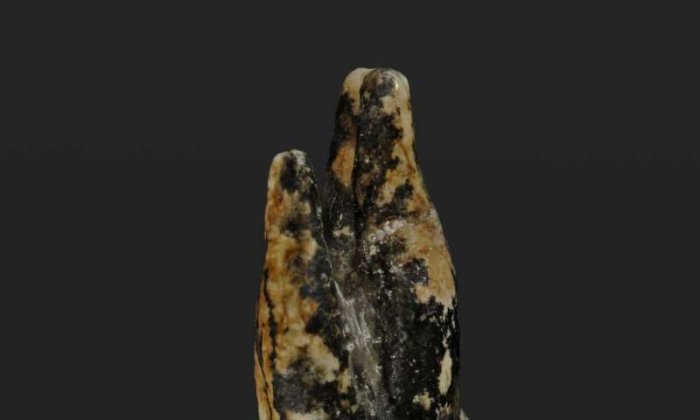7.2-Million-Year-Old Pre-Human Remains Suggest First Human Ancestor Came From Europe Not Africa
– Two fossils of the species Graecopithecus freybergi, discovered in Greece and Bulgaria have now been dated to between 7.2 and 7.1 million years ago.
The discovery is quite intriguing because it suggests first human ancestors came from Europe and not Africa, as previously thought.

Present-day chimpanzees are humans’ nearest living relatives. Where the last chimp-human common ancestor lived is a central and highly debated issue in palaeoanthropology.
Previously, scientists had thought hominins and chimps split between seven and five million years ago, with the first in the hominin line emerging in Africa. The examined fossils, a lower jaw and an upper premolar tell a different story about the onset of human evolution.
Graecopithecus freybergi, nicknameded ‘El Graeco’ by scientists is a hominid originally identified by a single fragment of skull found in 1944. Since then more specimens have been found, indicating that the specimen may be the oldest known direct ancestor of modern man.
The fossils were examined by an an international research team headed by Professor Madelaine Böhme from the Senckenberg Centre for Human Evolution and Palaeoenvironment at the University of Tübingen and Professor Nikolai Spassov from the Bulgarian Academy of Sciences.
“Graecopithecus is not an ape. He is a member of the tribe of hominins and the direct ancestor of homo
The food of the Graecopithecus was related to the rather dry and hard savannah vegetation, unlike that of the recent great apes which are leaving in forests. Therefore, like humans, he has wide molars and thick enamel.
To some extent this is a newly discovered missing link. But missing links will always exist , because evolution is infinite chain of subsequent forms. Probably El Graeco’s face will resemble a great ape, with shorter canines,” said Professor Nikolai Spassov from the Bulgarian Academy of Sciences.
The fossils change the beginning of human history and place the last common ancestor of both chimpanzees and humans – the so-called Missing Link – in the Mediterranean region.
“This study changes the ideas related to the knowledge about the time and the place of the first steps of the humankind,” said Professor Spassov said.



 Creators of mankind
Creators of mankind Description of “Tall white aliens”
Description of “Tall white aliens” Where they came from?
Where they came from? About hostile civilizations
About hostile civilizations The war for the Earth
The war for the Earth “Tall white aliens” about eternal life
“Tall white aliens” about eternal life Video: “Nordic aliens”
Video: “Nordic aliens” Aliens
Aliens Alien encounters
Alien encounters The aliens base
The aliens base UFO
UFO Technology UFO
Technology UFO Underground civilization
Underground civilization Ancient alien artifacts
Ancient alien artifacts Military and UFO
Military and UFO Mysteries and hypotheses
Mysteries and hypotheses Scientific facts
Scientific facts


















